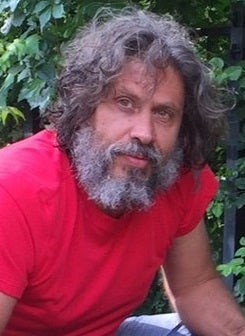Researchers at Waterloo Engineering are teaming up with a leading artificial intelligence (AI) institute and a network of Toronto hospitals to help doctors better read x-rays and diagnose patients.
Hamid Tizhoosh, who heads the Laboratory for Knowledge Inference in Medical Image Analysis (KIMIA Lab) at Waterloo, called working with hospitals to use AI “the most thrilling thing I have ever done in my career.”

Hamid Tizhoosh, director of the KIMIA Lab at Waterloo Engineering.
“I want to look back and say ‘This is what I did as a computer scientist,’” said Tizhoosh, a professor of systems design engineering. “It’s a very exciting time.”
The KIMIA Lab was selected by the Vector Institute, a Toronto-based research institute, to collaborate with the University Health Network (UHN) to improve a software system that assists with diagnosis from medical images.
It is the second project announced by Vector in what will be a series of short-term efforts to identify areas where world-class machine learning research could produce widespread health benefits.
UHN developed the software system, known as Coral Review, to enable doctors to do anonymous reviews – effectively providing second opinions – of medical imaging diagnoses by their peers. It is in use at a number of hospitals across Ontario.
Tizhoosh and his lab developed an AI algorithm to enhance that system by scanning thousands of existing x-rays to find similar ones and automatically recommend a diagnosis to the attending doctor.
Their AI system now has about a 70-per-cent accuracy rate. With the backing of Vector, the goal is to refine it and push the accuracy rate over 90 per cent within the next year.
'We're at the very beginning'
“It’s AI deployed in a slightly different way,” said Tizhoosh. “It allows the radiologist making the diagnosis to benefit from the knowledge of thousands of diagnoses made by other clinicians. That’s very different from making a diagnosis from scratch.”
The initial focus is on chest x-rays to diagnose collapsed lungs, a painful and potentially fatal condition, but the hope is to extend the new system to a long list of other medical problems.
“In spite of the progress we’ve made, we’re at the very beginning if we want to bring the technology into hospitals,” said Tizhoosh, who has been working on the application of AI to health care for over 25 years.
UHN is a network that includes Toronto General Hospital, the Princess Margaret Cancer Centre and several other facilities. Vector is a non-profit corporation funded by the governments of Canada and Ontario, and industry sponsors.